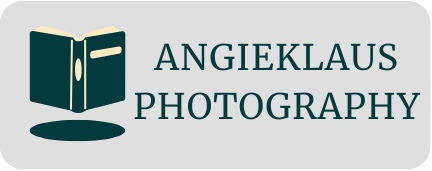Imagine diving into a book so captivating that you forget the world around you. That’s the magic of reading success. It’s not just about flipping pages; it’s about unlocking new realms of knowledge, adventure, and imagination. In a world filled with distractions, mastering the art of reading can feel like finding a hidden treasure map.
Table of Contents
ToggleUnderstanding Reading Success
Reading success encompasses the skills and strategies that enable effective comprehension and enjoyment of text. Achieving this success involves more than simply decoding words; it requires the ability to engage deeply with content.
Definition of Reading Success
Reading success describes a reader’s capability to understand, interpret, and engage with written material effectively. Its measurement includes fluency, comprehension, motivation, and critical thinking skills. For instance, fluent readers can effortlessly recognize words and phrases, while comprehending readers grasp the underlying themes and messages. Recognizing the reader’s ability to connect personal experiences with the material enhances the overall engagement. This multifaceted approach to reading empowers individuals to navigate various texts confidently.
Importance of Reading Success
Reading success plays a crucial role in academic achievement and lifelong learning. Mastery of reading skills supports cognitive development, enabling better problem-solving and critical analysis. Strong readers perform better in school, demonstrating improved outcomes across subjects. Furthermore, engagement with diverse texts fosters a love for reading, encouraging exploration of ideas and cultures. Adaptability to different reading contexts enhances an individual’s capability to participate in discussions and contribute to society meaningfully. Ultimately, reading success lays the groundwork for ongoing personal and professional growth.
Factors Influencing Reading Success

Reading success depends on various interrelated factors that shape a reader’s ability to engage with text. Understanding these influences can enhance the reading experience and comprehension.
Early Literacy Skills
Early literacy skills serve as the foundation for reading success. Phonemic awareness plays a vital role, allowing readers to recognize sounds and manipulate them. Vocabulary development enhances comprehension by providing necessary contextual understanding. In addition, exposure to print concepts introduces learners to book handling and text directionality. Children who develop these skills early experience greater success later. Research indicates that early interventions can significantly improve literacy outcomes.
Home Environment
The home environment significantly impacts reading success. A language-rich atmosphere fosters communication and vocabulary growth. Access to books and reading materials increases engagement, encouraging exploration. Parents who model reading behaviors, such as reading aloud, establish positive reading habits. Regular library visits and discussions about stories create a nurturing environment. Studies show that supportive home environments can lead to improved academic performance and enthusiasm for reading.
Educational Practices
Effective educational practices enhance reading success in students. Quality instruction focuses on developing comprehension strategies and fluency. Teachers who implement diverse methodologies cater to different learning styles, supporting all students. Structured reading programs often incorporate assessments to monitor progress. Collaborative learning opportunities promote peer support and motivation. Ongoing professional development for educators leads to improved teaching effectiveness and subsequently benefits students’ reading outcomes.
Strategies for Achieving Reading Success
Achieving reading success involves implementing effective strategies. This section discusses essential elements such as reading programs and technology’s role in enhancing reading capabilities.
Effective Reading Programs
Effective reading programs provide structured approaches to literacy. Programs such as Reading Recovery and Guided Reading focus on individual student needs, promoting targeted improvement. Research shows that systematic phonics instruction significantly enhances reading fluency and comprehension. Additionally, integrating diverse texts in these programs exposes students to various genres and styles. Training educators in these methodologies ensures they can support students effectively. Regular assessments help track progress and adjust strategies, ensuring students achieve measurable reading success.
Role of Technology in Reading
Technology plays a significant role in fostering reading success. E-books and interactive reading apps engage students actively, catering to different learning styles. Tools such as audiobooks and text-to-speech software support struggling readers, enhancing comprehension. Online platforms for collaborative reading encourage peer interaction and discussion, promoting deeper understanding. Data from educational studies indicates that integrating technology in reading can lead to increased motivation. By leveraging digital resources, educators can create a more dynamic learning environment that fosters a love for reading and improved literacy skills.
Measuring Reading Success
Measuring reading success involves using various assessment methods to evaluate proficiency and comprehension. Accurate measurements help identify areas for improvement.
Standardized Assessments
Standardized assessments provide a consistent framework for measuring reading success across diverse populations. These tests, such as the DIBELS and the SAT, deliver quantitative data on a student’s reading abilities. Administrators often use benchmarks to compare individual student performance against national averages. Results from standardized assessments help educators pinpoint specific skills that need attention. Additionally, this type of assessment allows tracking progress over time, offering a clear picture of development.
Informal Assessments
Informal assessments encompass a wide range of techniques to gauge reading comprehension and fluency. Classroom observations, reading logs, and one-on-one reading sessions allow educators to gather qualitative data about student performance. Educators may implement running records to analyze reading accuracy and fluency during guided reading. Peer discussions and comprehension questions facilitate engagement and provide insight into student’s understanding. This personalized data complements standardized assessments, creating a more comprehensive view of reading success. By utilizing various informal methods, educators can adapt instruction to meet individual learner needs effectively.
Conclusion
Reading success is a vital skill that shapes an individual’s journey through life. It opens doors to new ideas and experiences while enhancing cognitive abilities. By nurturing early literacy skills and creating a supportive environment, individuals can set the stage for lifelong reading habits.
Effective educational practices and the integration of technology play crucial roles in fostering reading success. With the right strategies and assessments in place, educators can tailor their approaches to meet diverse learning needs. Ultimately, embracing the journey of reading not only enriches personal growth but also empowers individuals to thrive academically and professionally.



